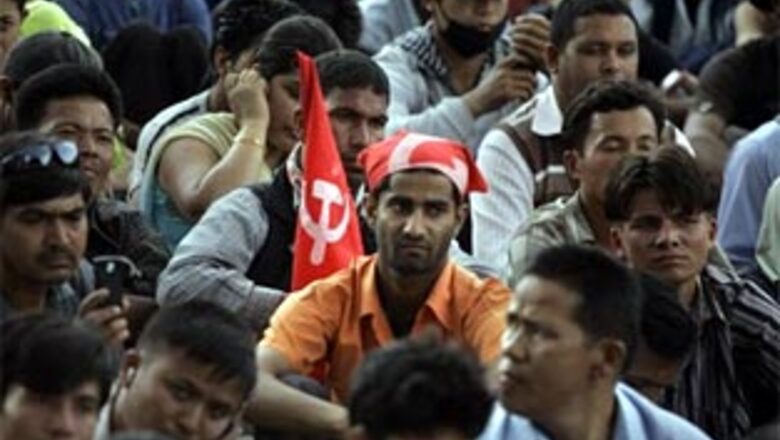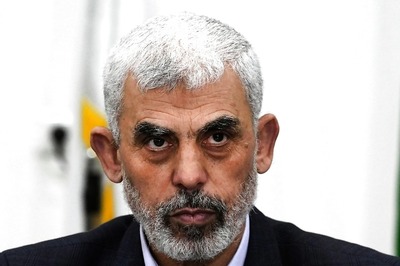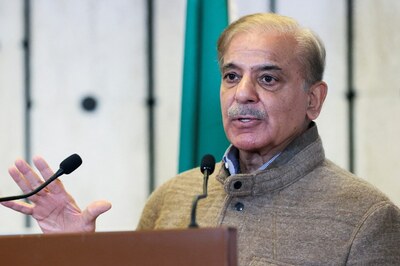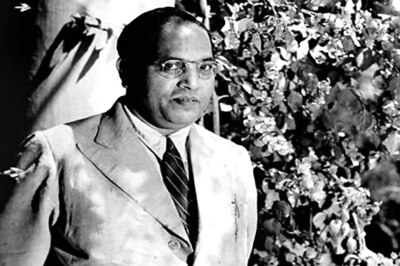
views
Kathmandu (Nepal): Nepal's political parties will meet on Tuesday in a bid to form a new coalition after Maoist Prime Minister Prachanda resigned and his party threatened street protests over a crisis sparked by the army chief's sacking.
Any effort to forge a new government could require bringing together about two dozen parliamentary groups, highlighting the difficulties of alliance-building in a democracy slowly emerging from a decade-old civil war.
The Maoists, the biggest group in parliament, have vowed to take to the streets to protest what they say is their ousting by Opposition forces. It is unclear if they will attend Tuesday's meeting.
"An all-party meeting is scheduled this afternoon to discuss the possibility of forming a coalition government with the consensus of all parties," Bimalendra Nidhi, a senior leader of the Opposition Nepali Congress party told Reuters on Tuesday.
Former guerrilla leader Prachanda resigned after his decision to sack army chief Rookmangud Katawal was not backed by other government allies and the President, triggering a political deadlock.
The Maoists accuse the army, on opposite sides of a civil war that ended three years ago, of undermining the authority of the civilian government.
The main Opposition, Nepali Congress, is not bidding to lead a new coalition and has said it would back the moderate Communist UML party if the latter staked a claim to form the government.
The political uncertainty may delay the drafting of a new constitution, a key part of a 2006 peace deal that saw the Maoists lay down their arms before winning an election last year.
While the Maoists have warned of street protests, analysts said Prachanda's standing within the party had gone up since his resignation.
But he could lose political ground if the voters saw him as too disruptive.
The Maoist election victory raised hopes in the impoverished Himalayan nation, but soon Nepalis found themselves struggling with daily power outages, high prices, massive fuel shortages and worsening public security.
"Nepalis are too tired to care because the Maoists haven't delivered and they see them as just like any other party," said Kunda Dixit, editor of the weekly Nepali Times.
"But the people will not take it kindly if the Maoists are seen as obstructing. So the best thing for them and everybody would be to form a national consensus government, which the Maoists could join or support from the outside."
The Maoists have said they could consider backing a new government if Katawal is removed.
In a highly fractured Nepali parliament, the numbers are crucial.
"The possibility of their (Maoists) coming back to power still exists," said an editorial in the Himalayan Times.
"With them in opposition, the country may become ungovernable."


















Comments
0 comment